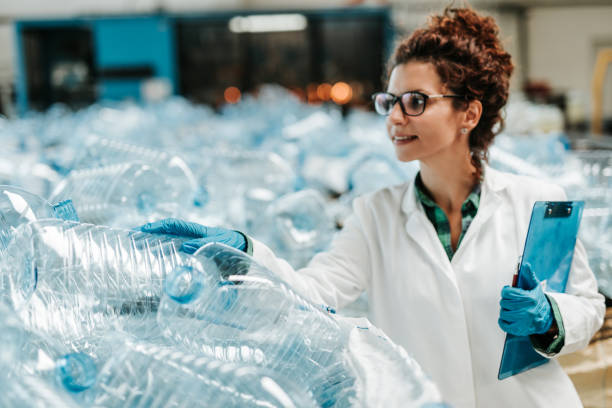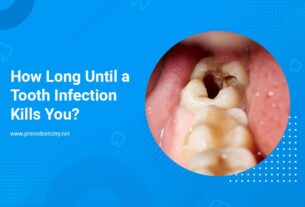In our journey for a healthier lifestyle, many of us have turned to reusable water bottles as a sustainable choice. However, the widespread practice of reusing plastic water bottles may be causing more harm than good. In this article, wellhealthorganic.com know why not to reuse plastic water bottles know its reason in hindi, we explore the environmental impact of this clearly painless habit and explore the reasons behind it.
स्वस्थ जीवन शैली की अपनी यात्रा में, हममें से कई लोगों ने एक स्थायी विकल्प के रूप में पुन: प्रयोज्य पानी की बोतलों का उपयोग करना शुरू कर दिया है। हालाँकि, प्लास्टिक की पानी की बोतलों का पुन: उपयोग करने की व्यापक प्रथा फायदे से अधिक नुकसान पहुंचा सकती है। इस लेख में,wellhealthorganic.com जानें कि प्लास्टिक की पानी की बोतलों का दोबारा उपयोग क्यों न करें, जानें इसका कारण हिंदी में, हम इस स्पष्ट रूप से दर्द रहित आदत के पर्यावरणीय प्रभाव का पता लगाते हैं और इसके पीछे के कारणों का पता लगाते हैं।
Page Contents
Understanding the Plastic Problem
Plastic material items are everywhere in our daily lives, It creates a significant threat to our environment. Single-use plastic bottles, in particular, contribute significantly to pollution and harm ecosystems. The convenience they offer often overshadows the adverse effects on our planet.
प्लास्टिक समस्या को समझना
प्लास्टिक सामग्री की वस्तुएं हमारे दैनिक जीवन में हर जगह हैं, यह हमारे पर्यावरण के लिए एक महत्वपूर्ण खतरा पैदा करती है। विशेष रूप से एकल-उपयोग प्लास्टिक की बोतलें, प्रदूषण में महत्वपूर्ण योगदान देती हैं और पारिस्थितिकी तंत्र को नुकसान पहुंचाती हैं। वे जो सुविधा प्रदान करते हैं वह अक्सर हमारे ग्रह पर पड़ने वाले प्रतिकूल प्रभावों पर भारी पड़ जाती है।
The Downside of Reusing Plastic
1. Bacterial Buildup
One of the primary concerns with reusing plastic water bottles is the risk of bacterial contamination. These bottles, designed for single use, may develop tiny cracks and cuts over time, providing a breeding ground for harmful bacteria. This can compromise your health, leading to digestive issues and other illnesses.
प्लास्टिक का पुन: उपयोग करने का नकारात्मक पक्ष
1. बैक्टीरियल बिल्डअप
प्लास्टिक की पानी की बोतलों का दोबारा उपयोग करने में प्राथमिक चिंताओं में से एक बैक्टीरिया संदूषण का खतरा है। एकल उपयोग के लिए डिज़ाइन की गई इन बोतलों में समय के साथ छोटी दरारें और कट लग सकते हैं, जो हानिकारक बैक्टीरिया के लिए प्रजनन स्थल प्रदान करते हैं। यह आपके स्वास्थ्य से समझौता कर सकता है, जिससे पाचन संबंधी समस्याएं और अन्य बीमारियाँ हो सकती हैं।
2. Chemical Leaching
Plastic bottles are made from various types of polymers, and with each refill, the bottle may release harmful chemicals into the water. Bisphenol A (BPA), a known endocrine disruptor, is commonly found in plastic bottles and can leach into the water, posing health risks, especially when exposed to heat.
2. रासायनिक निक्षालन
प्लास्टिक की बोतलें विभिन्न प्रकार के पॉलिमर से बनाई जाती हैं, और प्रत्येक रीफिल के साथ, बोतल पानी में हानिकारक रसायन छोड़ सकती है। बिस्फेनॉल ए (बीपीए), एक ज्ञात अंतःस्रावी अवरोधक, आमतौर पर प्लास्टिक की बोतलों में पाया जाता है और पानी में घुल सकता है, जिससे स्वास्थ्य जोखिम पैदा हो सकता है, खासकर गर्मी के संपर्क में आने पर।
Hindi: जानिए क्यों नहीं फिरसे इस्तेमाल करना चाहिए प्लास्टिक की बोतलें
3. Environmental Impact
Beyond personal health concerns, reusing plastic water bottles has severe environmental consequences. Plastic pollution is a global crisis, with marine life suffering from ingestion and mix up in plastic waste. By opting for reusable alternatives, we can contribute to reducing the demand for single-use plastics.
3. पर्यावरणीय प्रभाव
व्यक्तिगत स्वास्थ्य संबंधी चिंताओं से परे, प्लास्टिक की पानी की बोतलों का पुन: उपयोग करने से गंभीर पर्यावरणीय परिणाम होते हैं। प्लास्टिक प्रदूषण एक वैश्विक संकट है, जिसमें समुद्री जीवन प्लास्टिक कचरे के अंतर्ग्रहण और मिश्रण से पीड़ित है। पुन: प्रयोज्य विकल्पों को चुनकर, हम एकल-उपयोग प्लास्टिक की मांग को कम करने में योगदान दे सकते हैं।
Also Read =Wellhealthorganic.Com/Know-The-Causes-Of-White-Hair-And-Easy-Ways-To-Prevent-It-Naturally
The Plastic Predicament
Plastic Composition: A Chemical Cocktail
wellhealthorganic.com know why not to reuse plastic water bottles know its reason in hindi,Plastic water bottles, typically made from polyethylene terephthalate (PET), may seem safe, but they load a chemical cocktail that can leach into the water when exposed to various conditions. Studies have shown that as these bottles age or are subjected to heat, the likelihood of harmful chemicals such as antimony increasing in the water becomes significant.
BPA Concerns: Beyond the Surface
Bisphenol A (BPA), a compound commonly found in plastic products, adds another layer of concern. This chemical is known for its endocrine-disrupting properties, which can interfere with hormonal balance in the body. Repeated use and exposure to heat intensify the risk of BPA leaching into the water, potentially leading to adverse health effects over time.
प्लास्टिक की दुर्दशा
प्लास्टिक संरचना: एक रासायनिक कॉकटेल
wellhealthorganic.com जानिए क्यों नहीं करना चाहिए प्लास्टिक की पानी की बोतलों का दोबारा उपयोग, जानिए इसका कारण हिंदी में, प्लास्टिक की पानी की बोतलें, जो आमतौर पर पॉलीइथाइलीन टेरेफ्थेलेट (पीईटी) से बनी होती हैं, सुरक्षित लग सकती हैं, लेकिन उनमें एक रासायनिक कॉकटेल होता है जो विभिन्न संपर्क में आने पर पानी में घुल सकता है। स्थितियाँ। अध्ययनों से पता चला है कि जैसे-जैसे ये बोतलें पुरानी होती जाती हैं या गर्मी के संपर्क में आती हैं, पानी में सुरमा जैसे हानिकारक रसायनों के बढ़ने की संभावना महत्वपूर्ण हो जाती है।
BPA की चिंताएँ: सतह से परे
बिस्फेनॉल ए (बीपीए), एक यौगिक जो आमतौर पर प्लास्टिक उत्पादों में पाया जाता है, चिंता की एक और परत जोड़ता है। यह रसायन अपने अंतःस्रावी-विघटनकारी गुणों के लिए जाना जाता है, जो शरीर में हार्मोनल संतुलन में हस्तक्षेप कर सकता है। बार-बार उपयोग और गर्मी के संपर्क में आने से बीपीए के पानी में घुलने का खतरा बढ़ जाता है, जिससे समय के साथ संभावित रूप से स्वास्थ्य पर प्रतिकूल प्रभाव पड़ सकता है।
Environmental Implications
Single-Use vs. Reusability: A Delicate Balance
While reusing plastic water bottles might seem like a sustainable choice compared to single-use options, the environmental impact tells a different story. The production of plastic bottles alone contributes significantly to carbon emissions and resource depletion. Moreover, the wear and tear from repeated use make recycling a challenging and less efficient process.
Microplastics Menace: A Silent Threat
As plastic bottles degrade over time, they break down into smaller particles known as microplastics. These tiny fragments infiltrate ecosystems, posing a threat to marine life and potentially entering the food chain. By choosing to reuse plastic water bottles, one inadvertently contributes to the proliferation of these silent environmental menaces.
पर्यावरणीय निहितार्थ
एकल-उपयोग बनाम पुन: प्रयोज्यता: एक नाजुक संतुलन
हालाँकि एकल-उपयोग विकल्पों की तुलना में प्लास्टिक की पानी की बोतलों का पुन: उपयोग एक टिकाऊ विकल्प की तरह लग सकता है, लेकिन पर्यावरणीय प्रभाव एक अलग कहानी बताता है। अकेले प्लास्टिक की बोतलों का उत्पादन कार्बन उत्सर्जन और संसाधन की कमी में महत्वपूर्ण योगदान देता है। इसके अलावा, बार-बार उपयोग से होने वाली टूट-फूट के कारण रीसाइक्लिंग एक चुनौतीपूर्ण और कम कुशल प्रक्रिया बन जाती है।
माइक्रोप्लास्टिक ख़तरा: एक मूक ख़तरा
जैसे-जैसे प्लास्टिक की बोतलें समय के साथ खराब होती जाती हैं, वे छोटे-छोटे कणों में टूट जाती हैं जिन्हें माइक्रोप्लास्टिक कहा जाता है। ये छोटे टुकड़े पारिस्थितिक तंत्र में घुसपैठ करते हैं, जिससे समुद्री जीवन के लिए खतरा पैदा होता है और संभावित रूप से खाद्य श्रृंखला में प्रवेश होता है। प्लास्टिक की पानी की बोतलों का पुन: उपयोग करने का विकल्प चुनकर, व्यक्ति अनजाने में इन मूक पर्यावरणीय खतरों के प्रसार में योगदान देता है।
Health Risks Unveiled
Microbial Multiplication: A Breeding Ground
wellhealthorganic.com know why not to reuse plastic water bottles know its reason in hindi,The moist environment inside a reused plastic water bottle becomes a breeding ground for bacteria and other microbes. Research has demonstrated that harmful pathogens can flourish in the crevices and cap of these bottles, posing a health risk to those who consume water from them.
Plastic Degradation: A Taste of Toxins
Ever noticed a peculiar taste in water that has been sitting in a plastic bottle for too long? That taste isn’t just a matter of preference—it’s an indication of the plastic breaking down and releasing potentially harmful compounds. Consuming water with a hint of plastic degradation raises concerns about the ingestion of toxins that can have long-term health consequences.
स्वास्थ्य जोखिमों का खुलासा
माइक्रोबियल गुणन: एक प्रजनन भूमि
wellhealthorganic.com जानिए क्यों नहीं करना चाहिए प्लास्टिक की पानी की बोतलों का दोबारा इस्तेमाल, जानिए इसका कारण हिंदी में, दोबारा इस्तेमाल की गई प्लास्टिक की पानी की बोतल के अंदर का नम वातावरण बैक्टीरिया और अन्य रोगाणुओं के लिए प्रजनन स्थल बन जाता है। शोध से पता चला है कि हानिकारक रोगज़नक़ इन बोतलों की दरारों और ढक्कन में पनप सकते हैं, जिससे इनसे पानी पीने वालों के लिए स्वास्थ्य जोखिम पैदा हो सकता है।
प्लास्टिक क्षरण: विषाक्त पदार्थों का स्वाद
क्या आपने कभी प्लास्टिक की बोतल में बहुत देर तक रखे पानी में एक अजीब स्वाद देखा है? यह स्वाद केवल प्राथमिकता का मामला नहीं है – यह प्लास्टिक के टूटने और संभावित हानिकारक यौगिकों को जारी करने का संकेत है। प्लास्टिक के क्षरण के संकेत के साथ पानी का सेवन विषाक्त पदार्थों के अंतर्ग्रहण के बारे में चिंता पैदा करता है जिसके दीर्घकालिक स्वास्थ्य परिणाम हो सकते हैं।
Opting for Sustainable Solutions
Investing in Reusable Alternatives: A Greener Choice
To reduce the environmental impact and health risks associated with reusing plastic water bottles, consider investing in high-quality, reusable alternatives. Stainless steel, glass, or BPA-free plastic bottles provide a sustainable and safer option, reducing the reliance on single-use plastic while ensuring a clean and toxin-free drinking experience.
Regular Cleaning Practices: A Hygienic Habit
For those who prefer sticking to plastic bottles, implementing regular and thorough cleaning practices is paramount. Washing the bottles with warm, soapy water and allowing them to air dry can help minimize the risk of microbial contamination, providing a safer avenue for reuse.
सतत समाधानों का विकल्प चुनना
पुन: प्रयोज्य विकल्पों में निवेश: एक हरित विकल्प
प्लास्टिक की पानी की बोतलों के पुन: उपयोग से जुड़े पर्यावरणीय प्रभाव और स्वास्थ्य जोखिमों को कम करने के लिए, उच्च गुणवत्ता वाले, पुन: प्रयोज्य विकल्पों में निवेश करने पर विचार करें। स्टेनलेस स्टील, कांच, या बीपीए मुक्त प्लास्टिक की बोतलें एक टिकाऊ और सुरक्षित विकल्प प्रदान करती हैं, जो स्वच्छ और विष मुक्त पीने का अनुभव सुनिश्चित करते हुए एकल-उपयोग प्लास्टिक पर निर्भरता को कम करती हैं।
नियमित सफ़ाई प्रथाएँ: एक स्वच्छ आदत
जो लोग प्लास्टिक की बोतलों से चिपके रहना पसंद करते हैं, उनके लिए नियमित और संपूर्ण सफाई प्रथाओं को लागू करना सर्वोपरि है। बोतलों को गर्म, साबुन वाले पानी से धोने और उन्हें हवा में सूखने देने से माइक्रोबियल संदूषण के जोखिम को कम करने में मदद मिल सकती है, जो पुन: उपयोग के लिए एक सुरक्षित अवसर प्रदान करता है।
Also Read=The Best Tips On How To Open Profitable Cosmetic Skincare Business New.Imujio.Com
(FAQs)wellhealthorganic.com know why not to reuse plastic water bottles know its reason in hindi
Q1. Is it safe to reuse plastic water bottles?
A1. While it may seem convenient, reusing plastic water bottles can pose health risks due to bacterial buildup and chemical leaching. Opting for purpose-built reusable bottles is a safer choice.
Q2. Can I recycle plastic water bottles after multiple uses?
A2. Recycling plastic bottles is a better alternative than single-use disposal. However, it’s essential to check local recycling guidelines, as not all plastics are easily recyclable.
Q3. What are the alternatives to plastic water bottles?
A3. Switching to stainless steel, glass, or BPA-free plastic bottles can reduce environmental impact while ensuring your safety.
Conclusion:
In conclusion, wellhealthorganic.com know why not to reuse plastic water bottles know its reason in hindi,the seemingly innocuous act of reusing plastic water bottles has far-reaching consequences for both our health and the environment. To make a positive impact, consider investing in purpose-built reusable bottles and explore alternative materials that are both safe and eco-friendly. By making informed choices, we contribute to a healthier planet for current and future generations.
निष्कर्ष:
निष्कर्ष के तौर पर,wellhealthorganic.com जानें कि प्लास्टिक की पानी की बोतलों का पुन: उपयोग क्यों नहीं करना चाहिए, जानें इसका कारण हिंदी में, प्लास्टिक की पानी की बोतलों का पुन: उपयोग करने का प्रतीत होने वाला अहानिकर कार्य हमारे स्वास्थ्य और पर्यावरण दोनों के लिए दूरगामी परिणाम देता है। सकारात्मक प्रभाव डालने के लिए, उद्देश्य-निर्मित पुन: प्रयोज्य बोतलों में निवेश करने पर विचार करें और वैकल्पिक सामग्रियों का पता लगाएं जो सुरक्षित और पर्यावरण-अनुकूल दोनों हों। जानकारीपूर्ण विकल्प चुनकर, हम वर्तमान और भावी पीढ़ियों के लिए एक स्वस्थ ग्रह में योगदान करते हैं।



